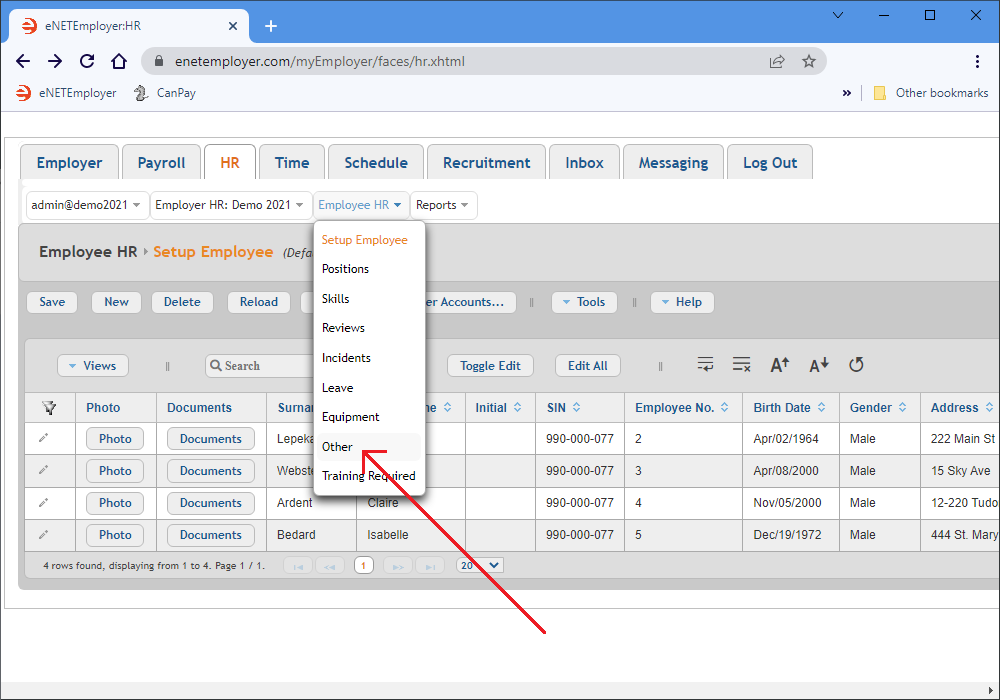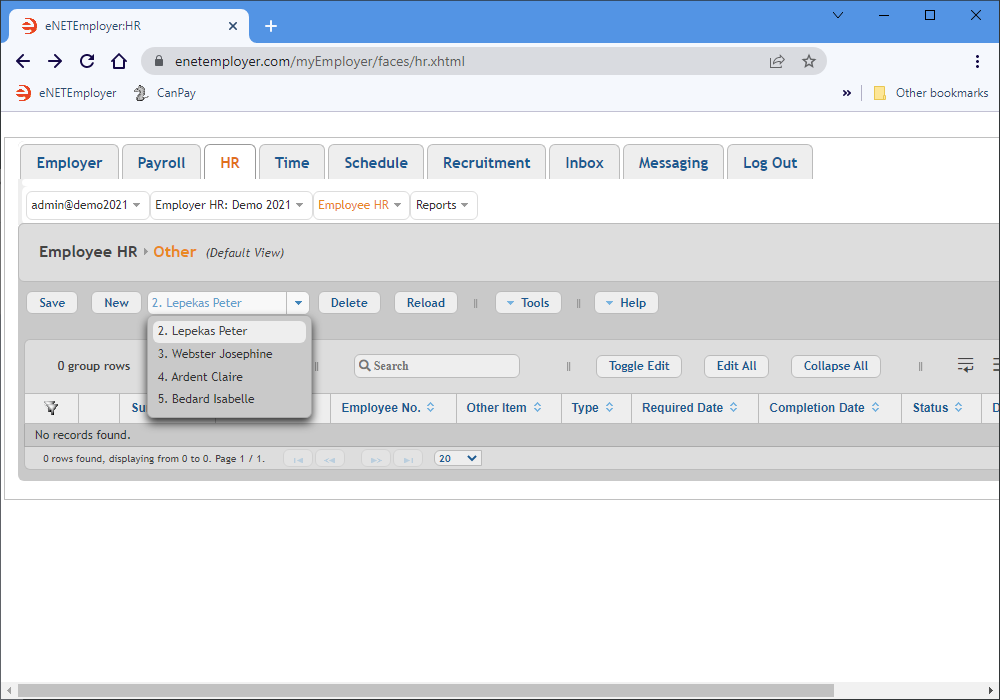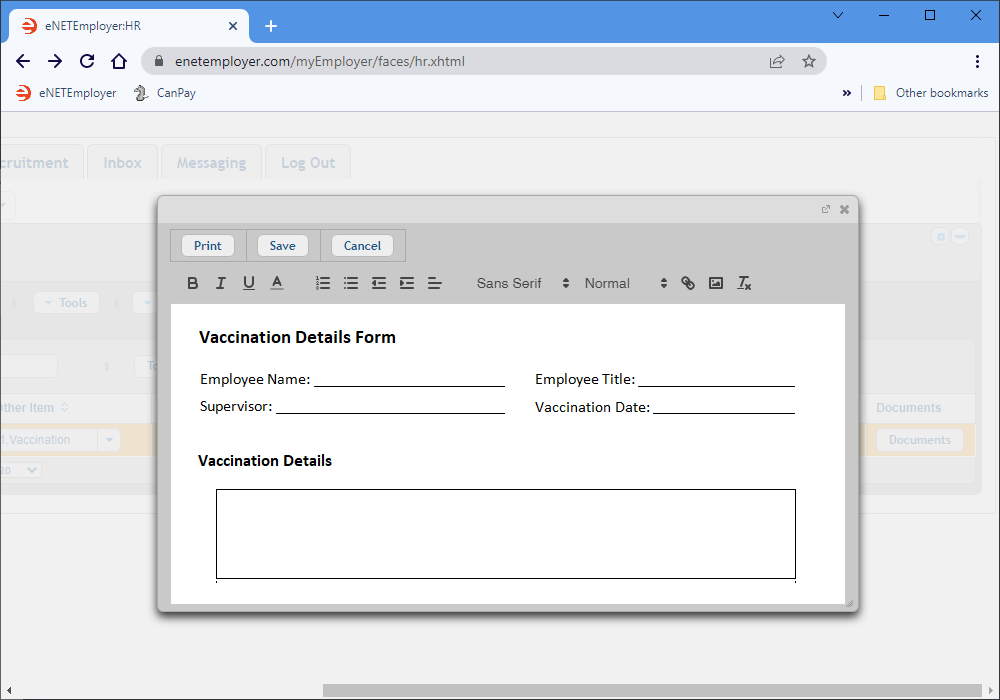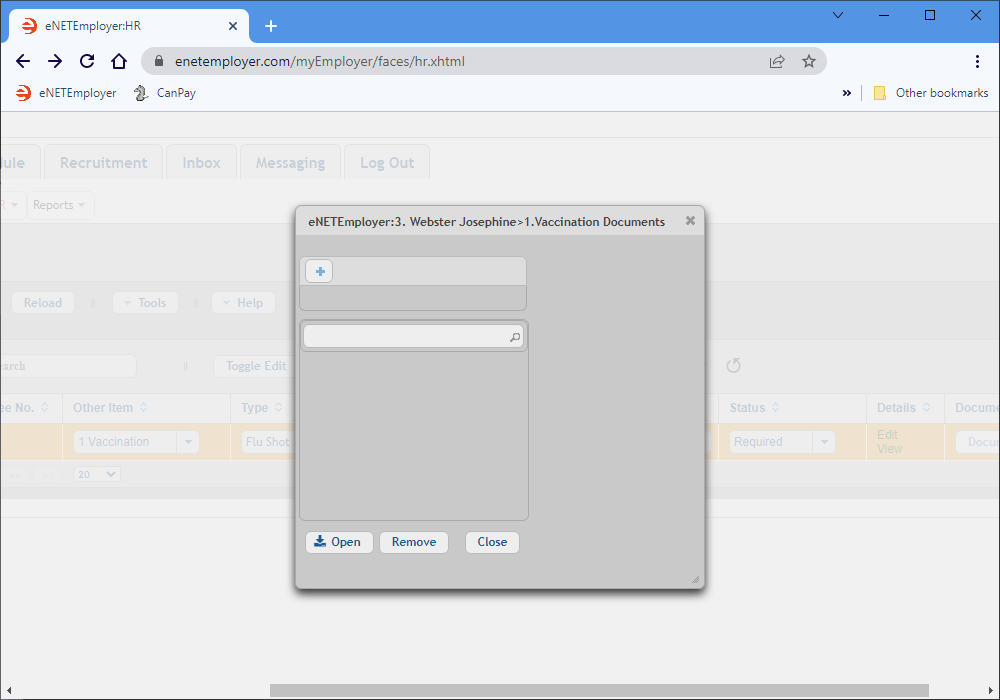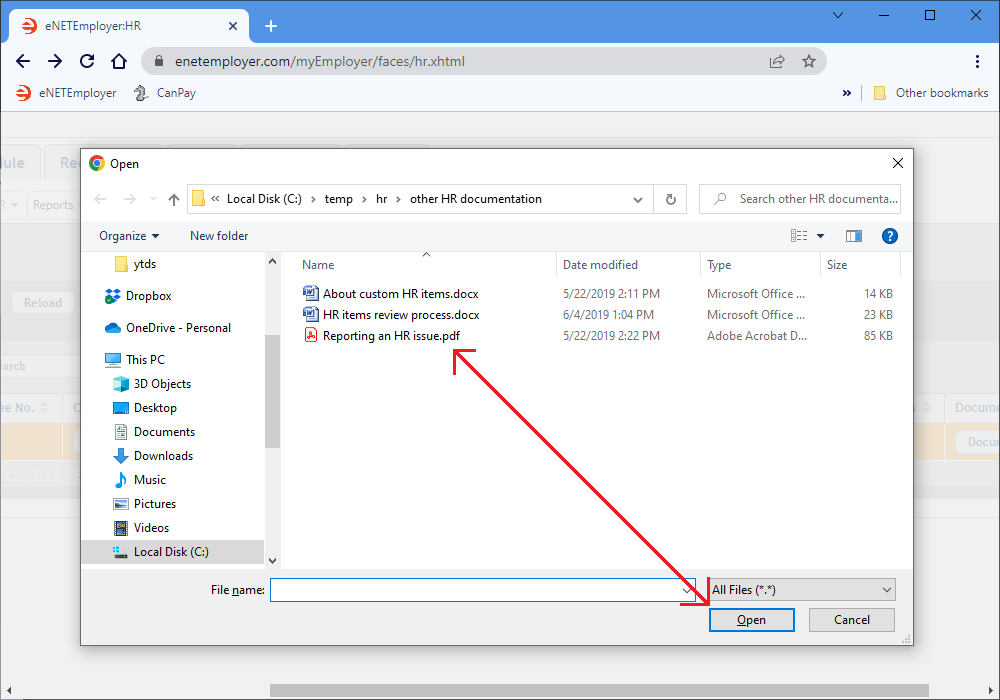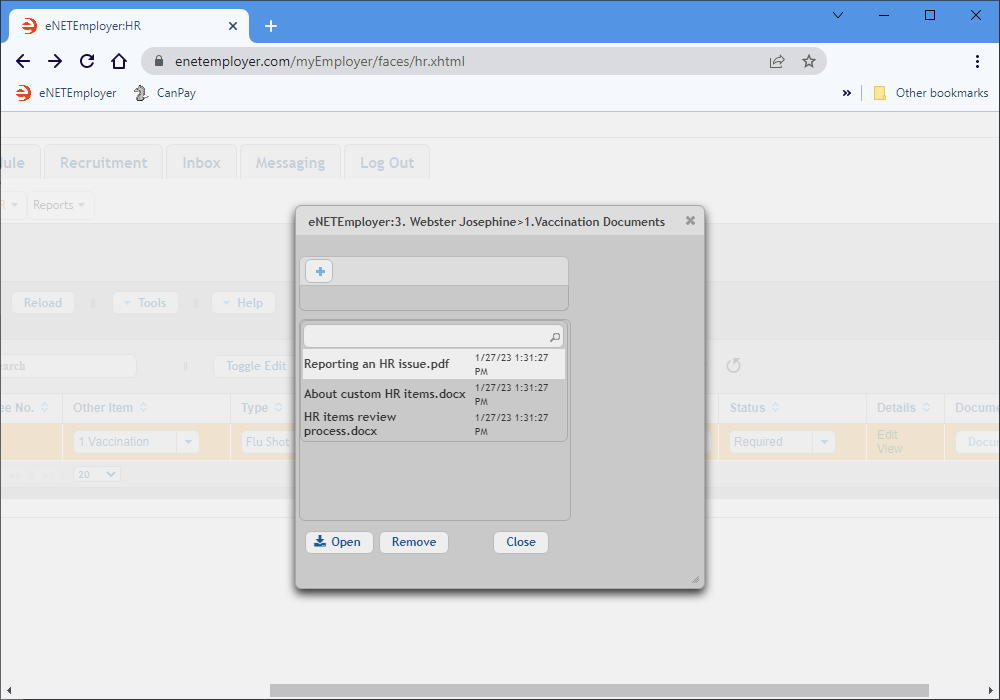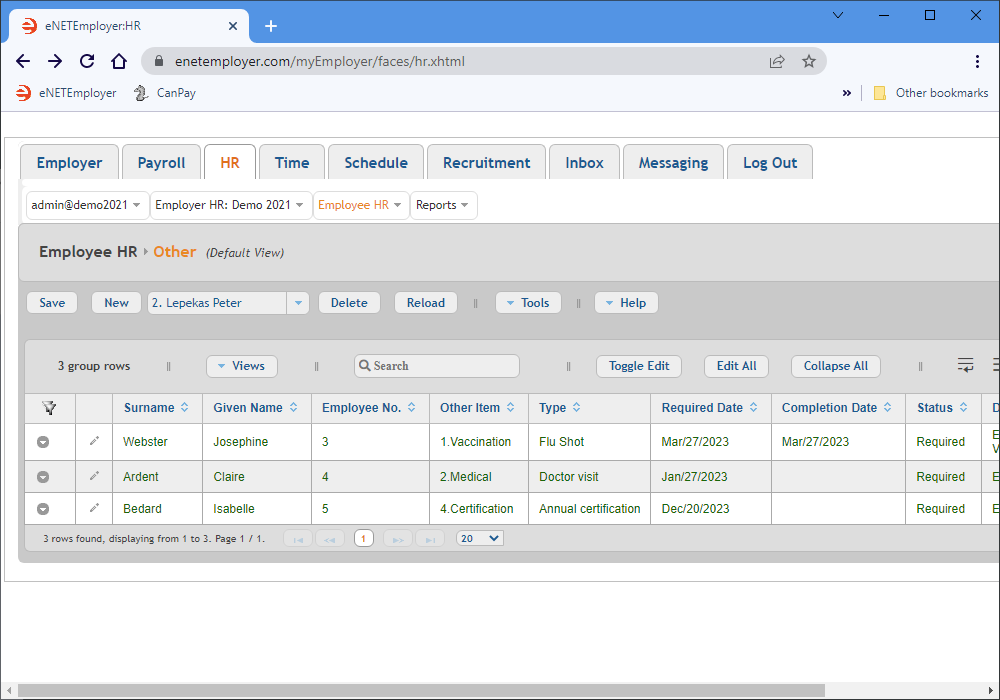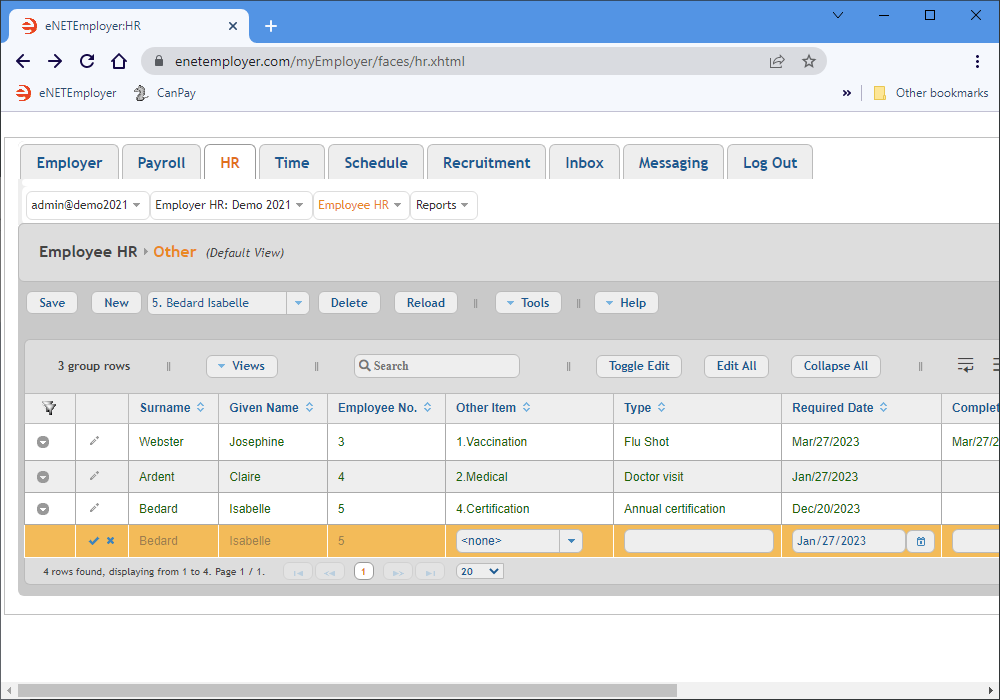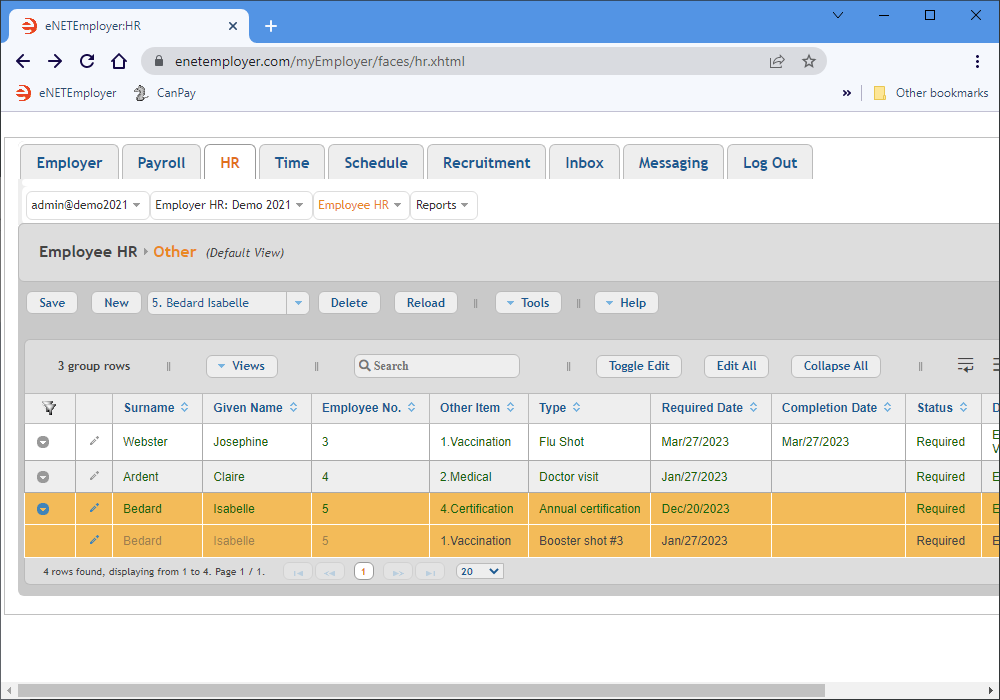Help Toolbar (select a button to browse other online help sections) Home Tutorials Resources Search Tabs & Menus Button Bar Table & Data Display |
Managing Other (Custom) HR Items
This tutorial will show you how to record and manage other (custom) HR items for your employees. Examples of "other" HR items could be certifications, safety performance, job goals, vaccinations, accessibility/medical issues, or any other human resource issue.
This tutorial has two parts:
- Part 1: To Record and Document a Custom HR issue.
- Part 2: To Record and Document Multiple HR issues.
Before you begin: - This tutorial assumes that you have added one or more custom HR items to your HR program via the HR Other screen. If you have not yet added an custom HR item, please view the Create an Other (Custom) HR Item tutorial to learn how to do so before proceeding with this tutorial. |
NOTE: Click on the images below to view them at full size
To Record and Document an Other (Custom) HR issue
- Click on the HR tab and then choose the Employee HR menu to display the various options.
- Choose the Employee HR - Other menu option. This opens the Employee - Other screen where you can assign custom HR items to your employees.
- When the Other screen appears, select the drop-down list immediately to the right of the New button. This displays a list of the employees that are a part of your HR program.
- Select the desired employee's name, and then choose the New button to insert a new custom HR item in the table.
- Move to the Other Item cell and then click on the downward arrow to display a list of incidents that have been defined for your company.
- Click on the item that you wish to assign. This closes the drop-down menu and displays your selection in Other Item cell.
- Move to the Type cell and enter text that indicates the HR item's classification or category. This cell is optional, but can be useful if you wish to categorize the HR item based on your company's existing classification structure.
- Move to the Required Date cell and use the Calendar icon to define the date by which the HR item must be completed.
- If you are recording an historical HR item (one that has already been resolved), then move to the Completion Date cell and use the Calendar icon to define the date on which the HR item was resolved. If the HR item has not yet been resolved, you can leave this cell blank.
- Click on the downward arrow in the Status cell, and then choose an option to designate the employee's current status for the HR item (Required or Completed). When you make your choice, the drop-down menu closes and displays your selection in the cell.
- Move to the Details cell and click on the Enter hyperlink. This opens a window that allows you to enter detailed information about the HR item.
- Enter the HR item's details as needed. You can use the formatting bar to change the font size, color, etc. You can also paste content into the window from another program or document (e.g. word processor, spreadsheet, web page).
Example: In Fig. 04 below, we have entered an HR item reporting form that can be filled in each time an employee vaccination occurs. - When the HR item details are complete, choose the Save button to close the pop-up window. This returns you to the main screen where the cell's original hyperlink has been replaced with the word "Edit" to indicate that you can perform further changes to the details when needed.
- Select the Documents button to open a window where you can attach documents and files that pertain to the current HR item. This can include PDFs, word processing documents, spreadsheets and images.
- When the Documents window appears, select the "+" (plus sign) icon to display the Open dialog box, and then use this window to navigate to the location of the document(s) that you wish to add.
Example: In our example below, we see several documents that relate to the employee's current and historical HR items. - Select one or more documents as needed, and then choose the Open button. This adds the selected document(s) to the eNETEmployer Documents window.
- Select the Close button to exit the Documents window.
- When your details are complete, choose the Save icon (the Check Mark icon at the left side of the row) to accept your changes. This action saves the changes for the row and takes you out of Edit Mode.
- Repeat the preceding steps to assign additional HR items as needed.
Example: In Fig. 08 below, we have recorded 3 HR items for three of our sample employees. Some have been resolved and some are still in progress. - Save the changes to each row when you are complete.
No Available Custom HR Items? If you do not see any HR items in this drop-down list, it is because none have yet been added in the Employer HR - Other screen (accessible from the Employer HR - Other menu command). Refer to the Create an Other (Custom) HR Item tutorial for further details. |
Example: In Fig. 03 below, we see a number of available custom HR items that can be applied to the current employee. These HR items were added earlier in the Create an Other (Custom) HR Item tutorial.
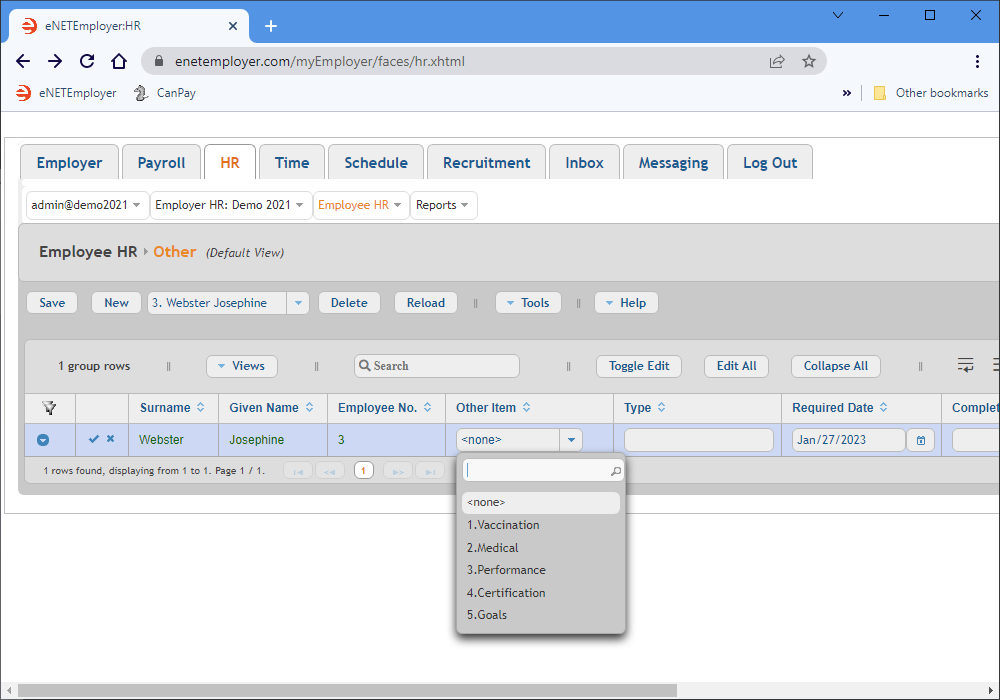
To Record and Document Multiple HR Items
If you wish to assign multiple HR items to a given employee, you can do so easily.
- In the Employee - Other screen, select the drop-down list immediately to the right of the New button to display the list of employees.
- Select the name of the person to whom a second HR item will be assigned, and then choose the New button. This inserts a sub row under the selected employee's existing HR item row.
Example: In Fig. 09 below, we have assigned an additional HR item to one of our sample employees. - Move to the Other Item cell for the new sub row, and choose a new HR item to assign.
- Move through the various cells and apply the settings needed to record the HR item.
Example: In Fig. 10 below, we have added an additional HR item - it has not yet been resolved. - Save the changes to the row when you are complete.
This completes the tutorial on recording custom employee HR items.
See Also:
